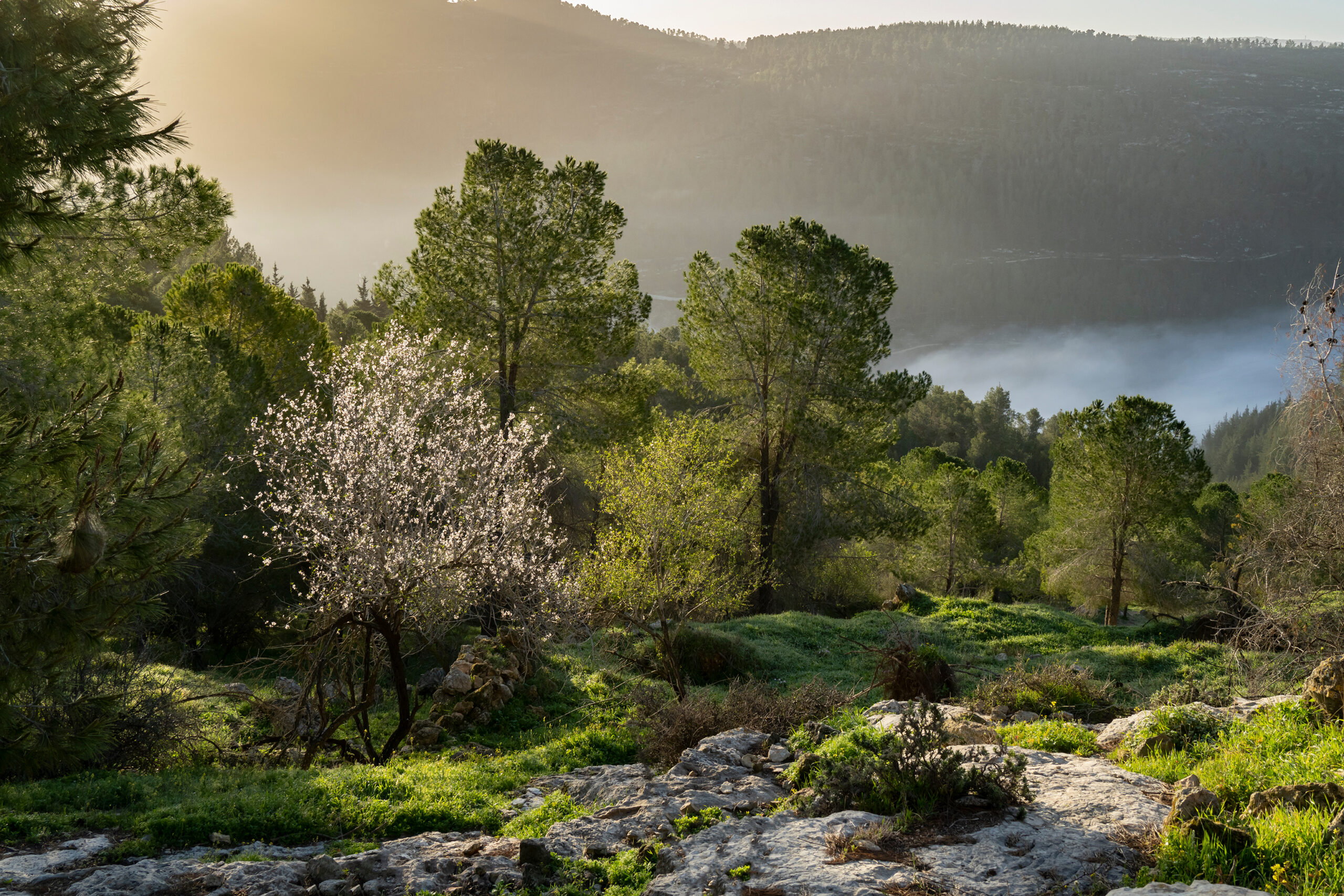The people suffered when the Jewish nation was exiled from the Promised Land, but the land suffered as well. The once bountiful land became inhospitable and barren, as if it were unwilling to host a foreign nation.
In 1867, as part of the chronicle of his visit to the Holy Land, Mark Twain wrote:
“The further we went, the hotter the sun got – and the more rocky and bare, repulsive and dreary the landscape became… There was hardly a tree or a shrub anywhere. Even the olive and the cactus, those fast friends of a worthless soil, had almost deserted the country.”
Similarly, Benjamin Disraeli, a Jew who twice served as Prime Minister of the United Kingdom, commented in 1846:
“The vineyards of Israel have ceased to exist, but the eternal law enjoins the Children of Israel to celebrate the vintage. A race that persists in celebrating its vintage, although it has no fruits to gather, will regain its vineyards.”
This echoed the words of the Prophet Isaiah:
“For my people’s soil— It shall be overgrown with briers and thistles— Aye, and for all the houses of delight, For the city of mirth.” – Isaiah 32:13
As the Jews returned, they focused on healing the land. Planting trees is a Jewish value connected to God’s eternal covenant. This was explicitly stated by the Prophet Amos:
“The days are coming,” declares the Lord, “when I will restore you to your land; I will bless you in your land; I will plant you in this land, and you will never again be uprooted out of the land that I’ve given you.” – Amos 9:13-15
This Jewish value of planting trees is illustrated by a story in the Talmud that tells of Honi, who was walking along the road when he saw a man planting a carob tree. “How many years will it take for this tree to bear fruit?” he asked. The man replied, “It will not produce fruit for 70 years.” Honi asked the man, “Do you expect to live long enough to benefit from this tree?” The man answered, “I found a world full of carob trees. Just as my ancestors planted for me, I too am planting for my descendants.”
The prophetic return of the Jews to the Promised Land was necessarily characterized by planting trees, as stated in so many verses:
“Again you shall plant vineyards on the hills of Shomron; Men shall plant and live to enjoy them.” – Jeremiah 31:4
“I will put in the wilderness the cedar, the acacia, the myrtle, and the olive. I will set in the desert the cypress, the plane, and the pine together.” – Isaiah 41:19
“Instead of the thorn shall come up the cypress, instead of the brier shall come up the myrtle, and it shall make a testimony for the Lord, an everlasting sign that shall not be cut off.” – Isaiah 55:13
And the Jews have certainly manifested this prophetic mandate. In 1903, the Jewish National Fund purchased its first parcel of land. Since 1900, roughly 250,000,000 trees have been planted across Israel. It is the only country in the world that ended the 20th century with more trees than in 1900. In 1948, roughly 2% of Israel was covered in trees. Thanks to these efforts, this has grown to around 8.5%. The public uses forests in Israel today for recreation and tourism, and urban forests and woodland near built-up areas improve air quality, reduce city heat, and maintain biodiversity.
But there is still much to be done. Close to 75,000 acres in Israel are designated as forestland but have not yet been planted. Israel365 has taken up this challenge, planting forests using the Miyawaki Method, developed by Japanese botanist Akira Miyawaki. This method produces ten years of growth in only three years by:
- Planting trees and shrubs native to the Land of Israel
- Dense planting of trees that support each other’s growth
- Extensive soil and irrigation preparation before planting
- Retaining moisture, making the forest fireproof
- Fencing in the forest to protect it from animals and terrorists
For generations, the Jewish people have returned to their land, transforming barren deserts into lush forests and reviving the soil once prophesied to bloom again. As the prophet Amos declared:
“The days are coming,” declares the Lord, “when I will restore you to your land; I will bless you in your land; I will plant you in this land, and you will never again be uprooted out of the land that I’ve given you.” – Amos 9:13-15
Through our Be A Light campaign, we are fulfilling this prophetic vision. But this is about more than just planting trees – it’s about standing up for the biblical heartland of Israel, strengthening its communities, and defending its divine promise.
The Be A Light campaign isn’t just about forests – it’s about building up Israel, empowering its people and supporters, and securing the future of Israel. It means supporting brave families, defending sacred ground, and standing up for the truth of God’s promises.
Every tree we plant in the hills of Judea and Samaria is a living testament to this commitment. These trees stand as a shield, protecting the land and its people, strengthening its communities, and securing its future. They turn barren soil into a living, breathing testament to God’s faithfulness – a powerful statement that this land belongs to the people of Israel and those who stand with them.
But we can’t do this alone. This vital work of building up and defending Israel is only possible because of the support of people like you – people who believe in the unbreakable bond between the people of Israel and their God-given land.
Stand with us. Be a light. Defend the land. Fulfill prophecy. Build up Israel.
Together, we can make history.





